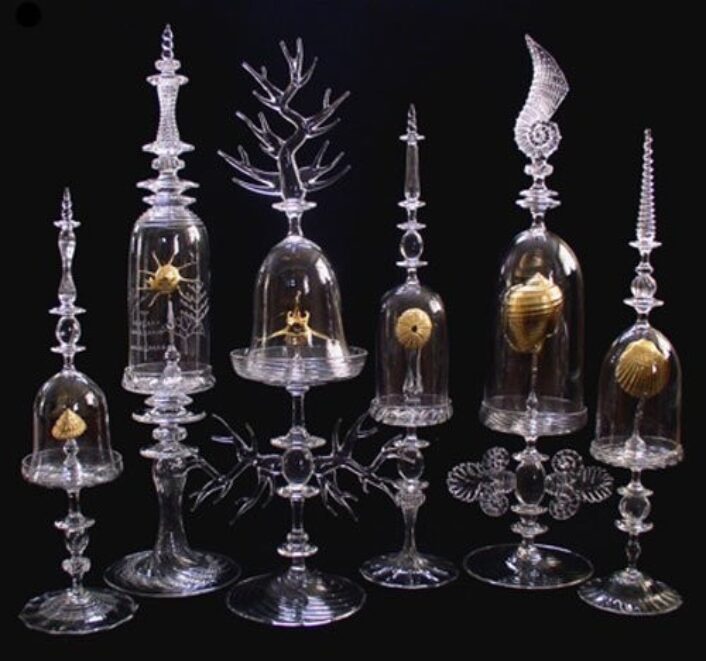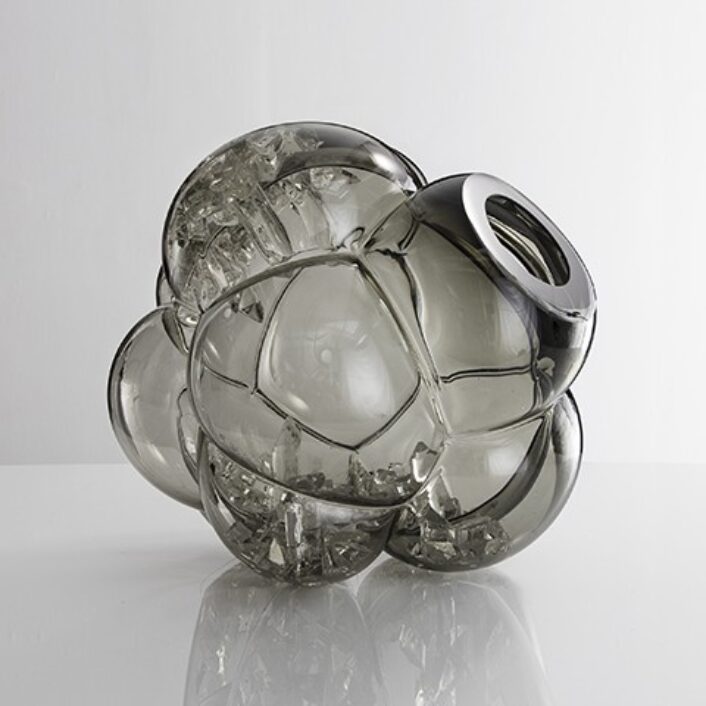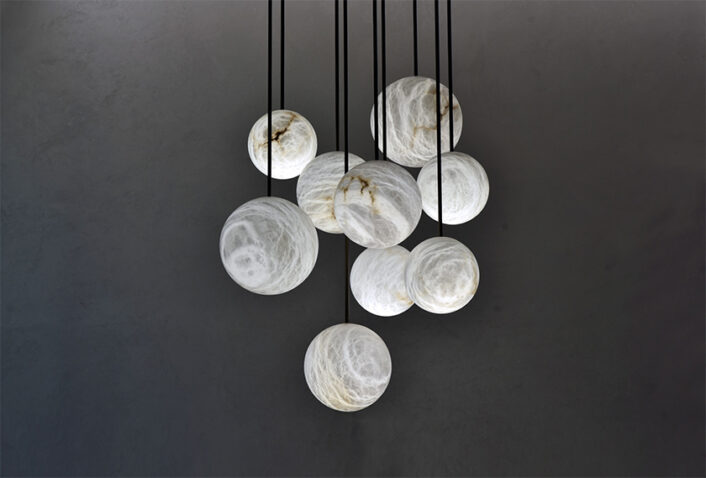Design
Freehand-blown glass lights
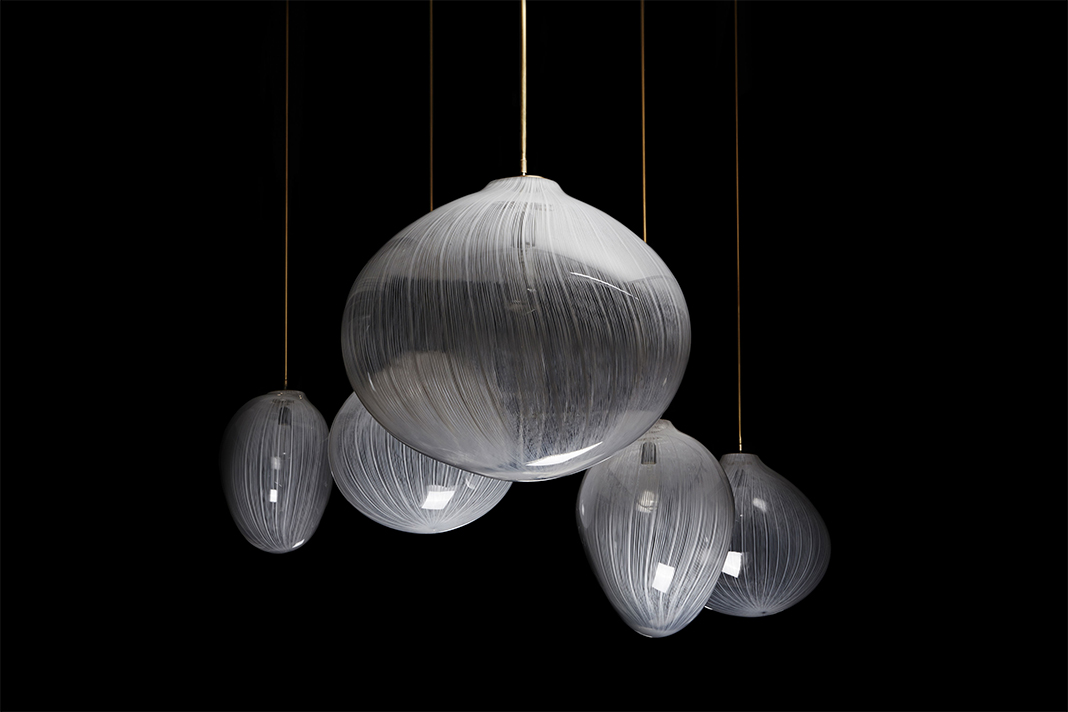
“Winter Light”, light installation, unique
free-hand blown glass, technical watermark, brass stem, led system
50 x 30 x 45 cm (variable dimensions)
Image courtesy of: Jeremy Maxwell Wintrebert
Jermey Maxwell Wintrebert was born in Paris and raised in West Africa. He has spent over twenty years perfecting the difficult technique of freehand glass-blowing. He learned this complicated method during an apprenticeship that saw him spending time in both the United States and Europe. Wintrebert spent nine years working alongside some of glass-blowing’s greatest masters and what he learned was quite special.
In 2007, Wintrebert settled in France; since then, he has divided his time between working in studios and working at private residences, workshops, and conferences. In 2015, he opened his own studio within a historic fine artisans’ district in Paris.
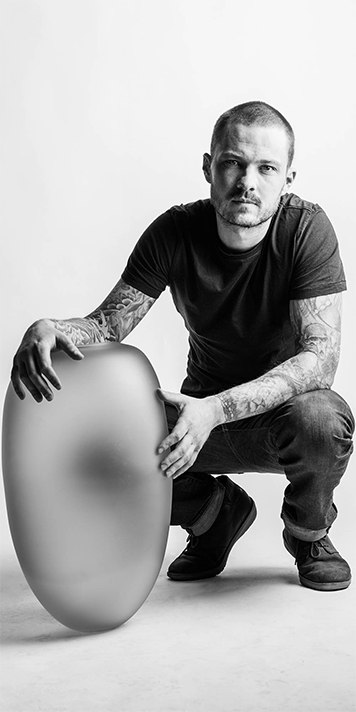
The artist and one of his pieces.
Image courtesy of: The Invisible Collection
Wintrebert never uses a mold which is the one constant in freehand glass-blowing. Nevertheless, the traditions of the art remain the same. His works reflect the multiple facets of glass and show the movement that formed them.
Wintrebert said, “The first time I saw a glass-blower take molten glass from a furnace, and it was this mysterious, dangerous, sexy liquid, I knew that was what I was going to do for the rest of my life. I was mesmerized. When I was younger, I had a tendency to be all over the place, my mind was scattered, but with glass, you need focus. Once that blowpipe is in your hand, you have to see it through to the end.”
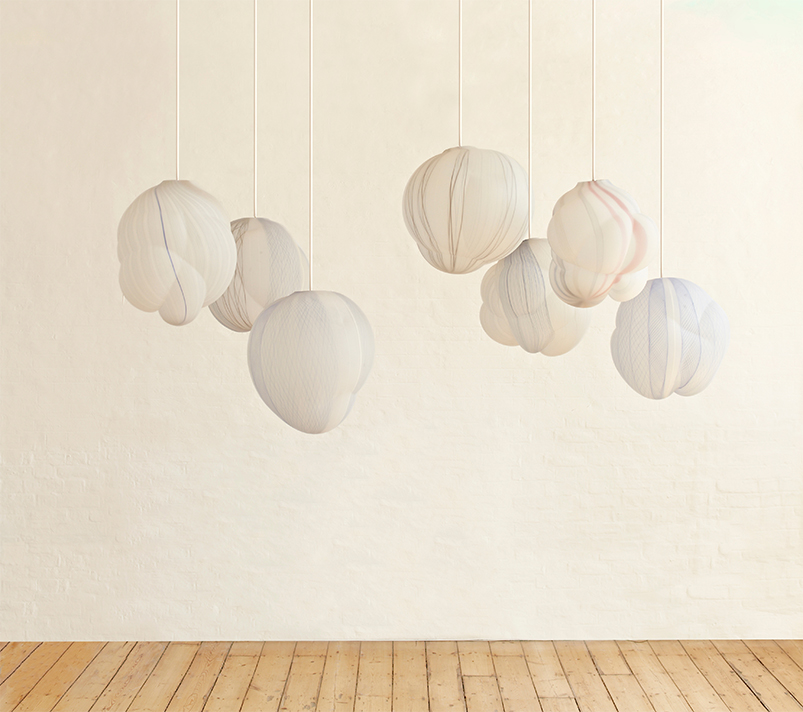
“Cloud”, light installation, unique
free-hand blown glass, technical watermark, brass stem, led system
60 x 60 x 60 cm (variable dimensions)
Image courtesy of: Jeremy Maxwell Wintrebert
There is a lot of variability in glassblowing, and Wintrebert further demonstrates that because he never uses a rigid mold to create the object’s final shape. The artist is constantly playing with gravity, movement, and temperature. Pieces are made in a 1,280-degree oven from a mixture of silica and minerals. The technical process of making this solution requires concentration and patience… and it produces only transparent glass. Color is added during the “blowing” process in the form of pigmented glass bars that are heated prior to use.
Wintrebert is always conscious of being able to integrate his lights into uniquely-sized spaces. As such, he has developed an intricate hanging system.
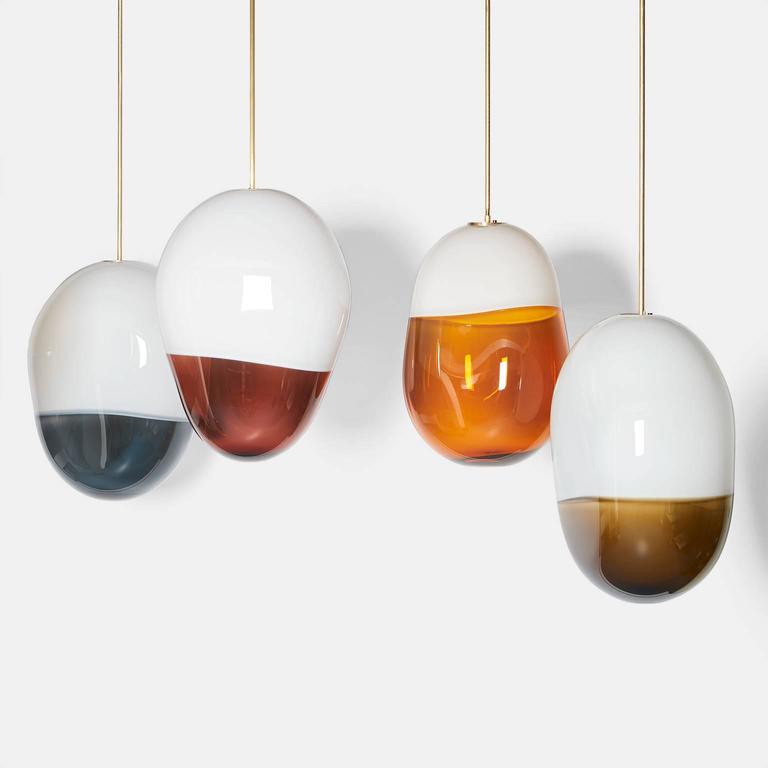
Four “Pillules” hand-blown pendants, unique
free-hand blown glass, brass stem, led system
30 x 40 x 50 cm (variable dimensions)
Image courtesy of: 1st Dibs
The only tools that Wintrebret uses are his hands. Upon returning to Paris having spent time honing his skills in San Francisco, Murano, and Czech Republic; the artist had a difficult time breaking into the “traditional Parisian” market. The galleries he approached told him his intricate African-inspired vessels were too crafty.
Wintrebret persevered and landed with Maxalto, the Italian furniture brand for which he produced a series of less ethnic, streamlined vases. Since then, his filigreed cloud lamps and free-formed pendents have found a very enthusiastic audience worldwide!
Glass, Steel, Wood
Everything is hand-made in Paris and production time tends to run around 3-4 months.
